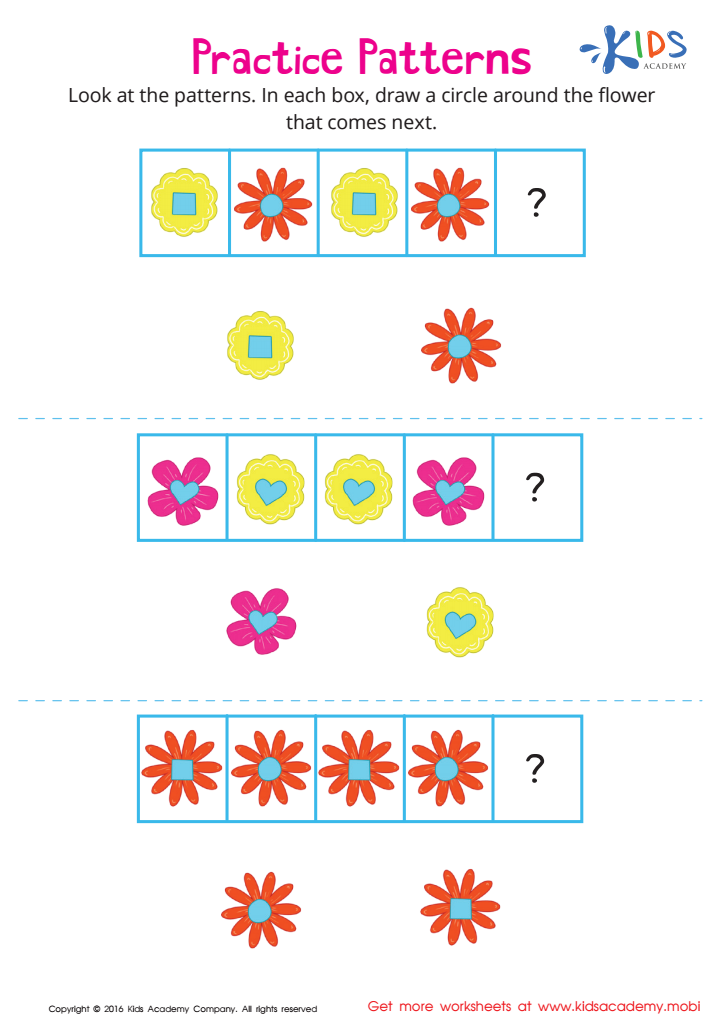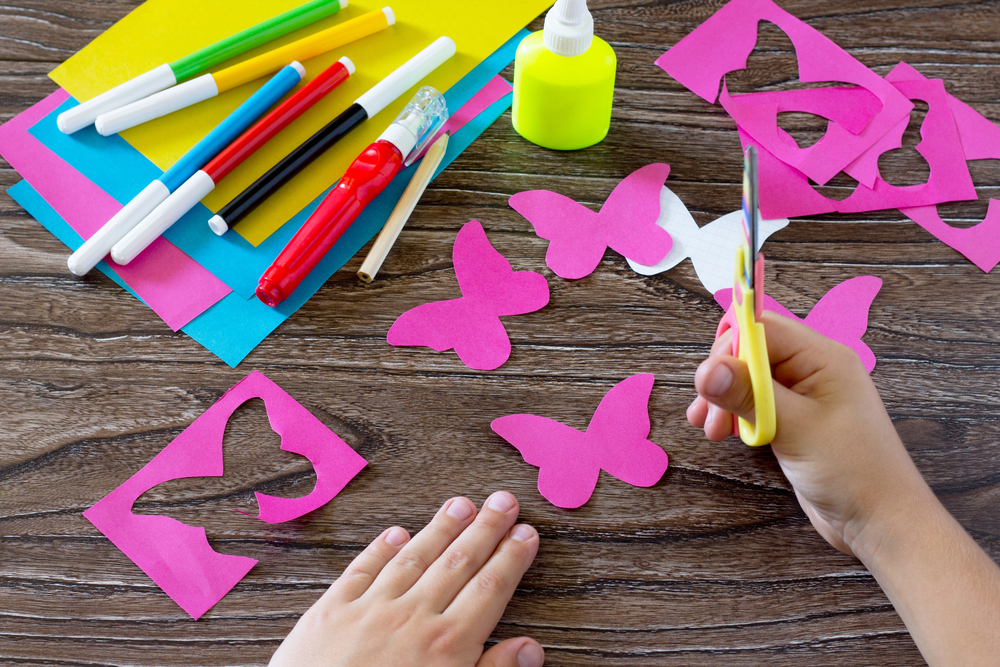Pattern recognition Normal Worksheets for Ages 3-6
13 filtered results
-
From - To
At Kids Academy, we offer Pattern Recognition Worksheets designed specifically for children aged 3-6. These engaging activities help young learners develop essential cognitive skills through recognizing, predicting, and creating patterns. The worksheets are crafted to enhance early math and critical thinking capabilities in a fun and interactive way. With vibrant illustrations and age-appropriate challenges, our pattern recognition exercises provide a solid foundation for future learning. Perfect for both classroom and home use, our worksheets support parents and educators in stimulating children's minds and fostering a lifelong love for learning. Discover a world of patterns today at Kids Academy!
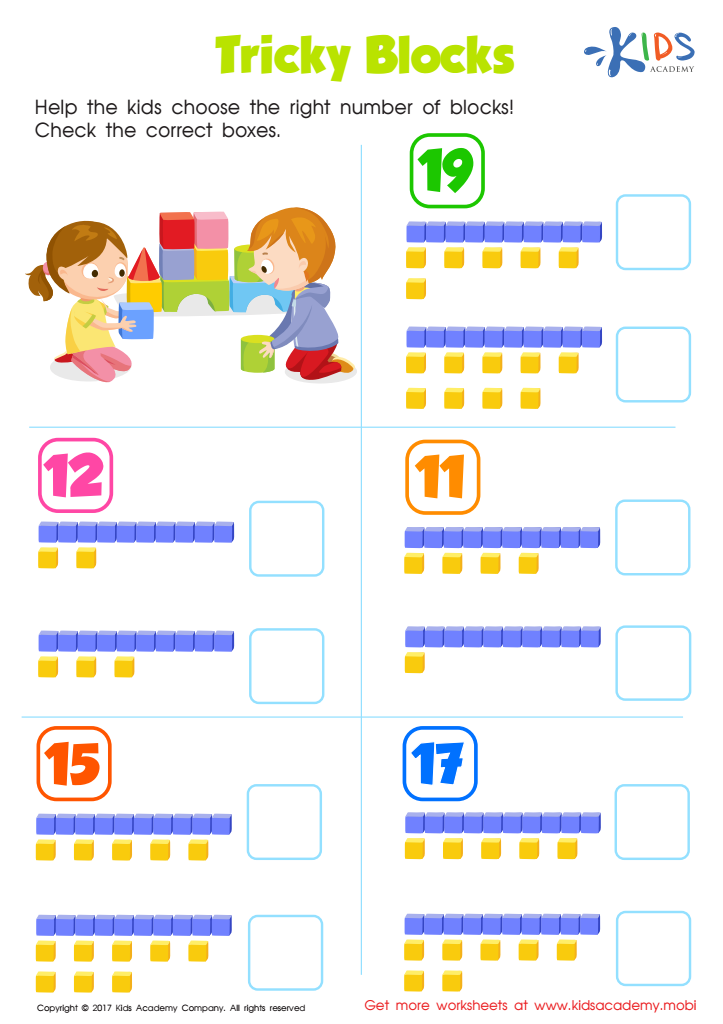

Tricky Blocks Worksheet
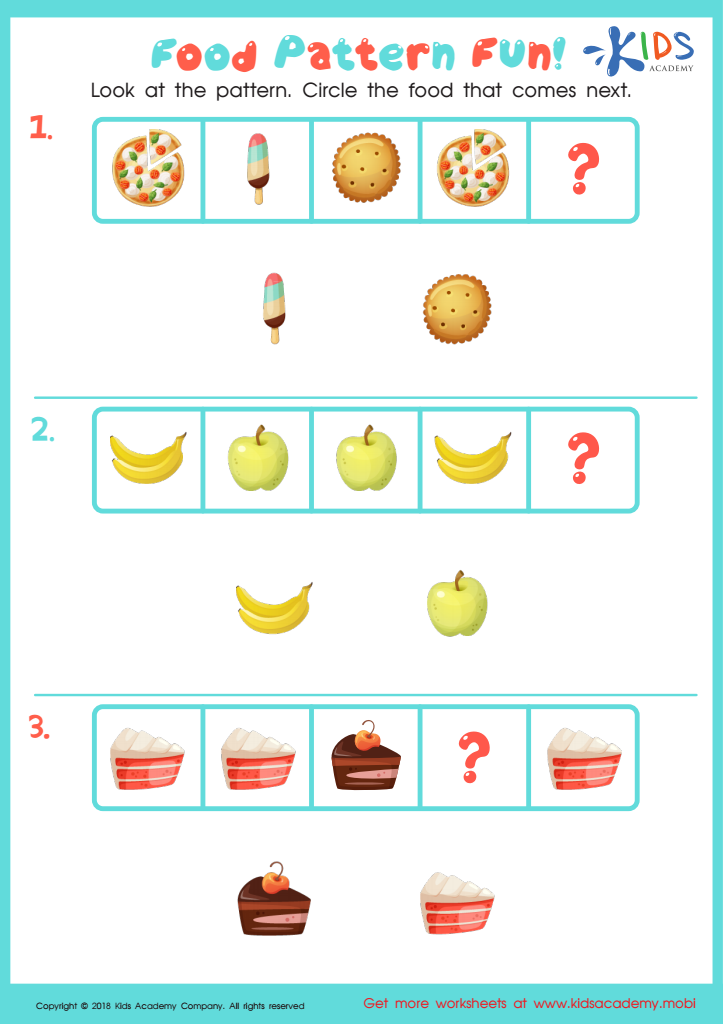

Food Pattern Fun Worksheet
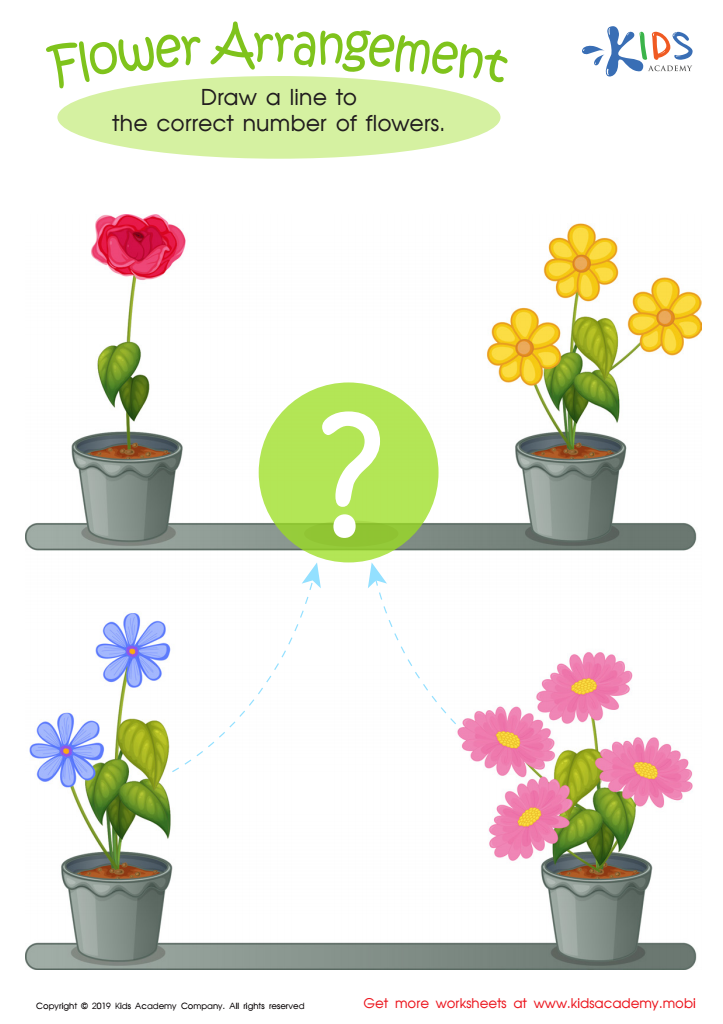

Flower Arrangement Worksheet
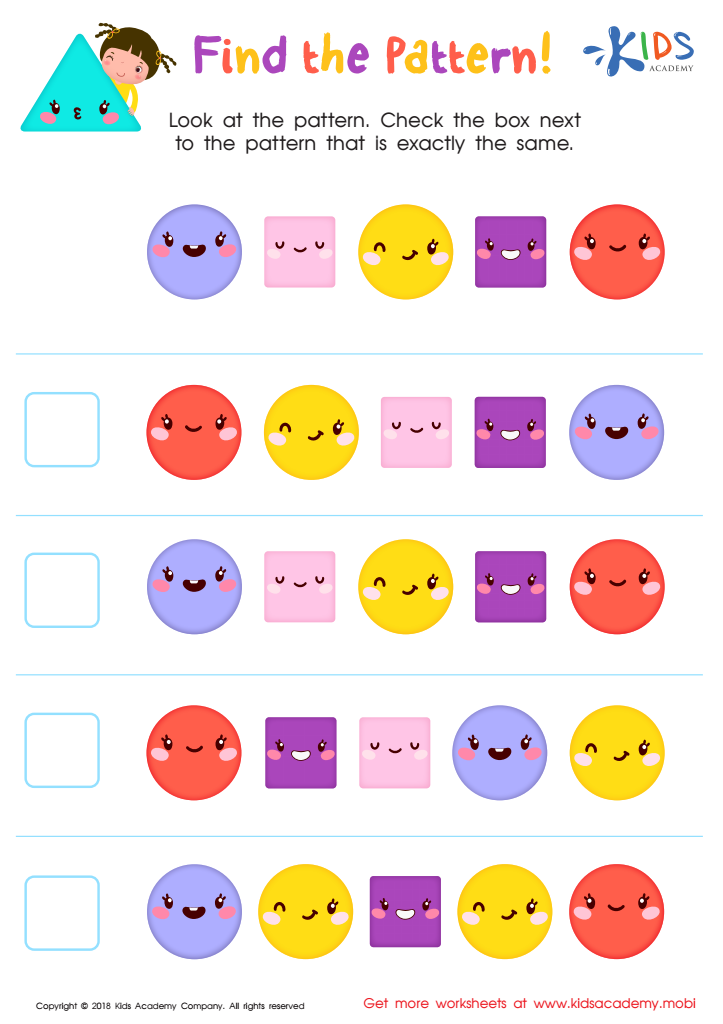

Find the Pattern Worksheet
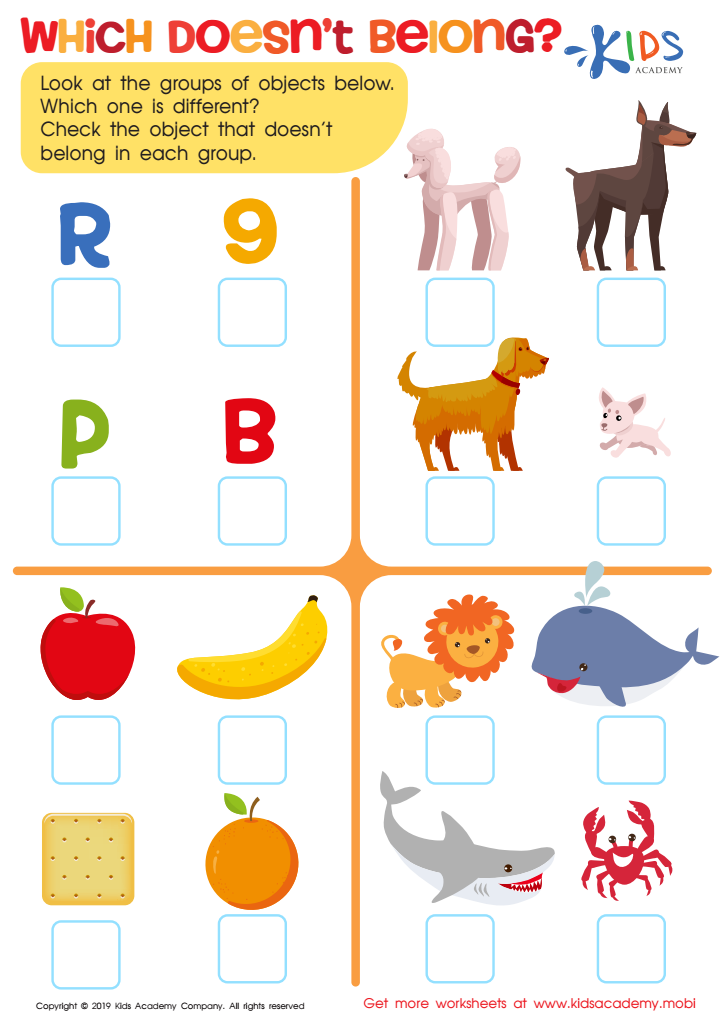

Which Doesn't Belong? Worksheet


Make the Same Pattern Worksheet
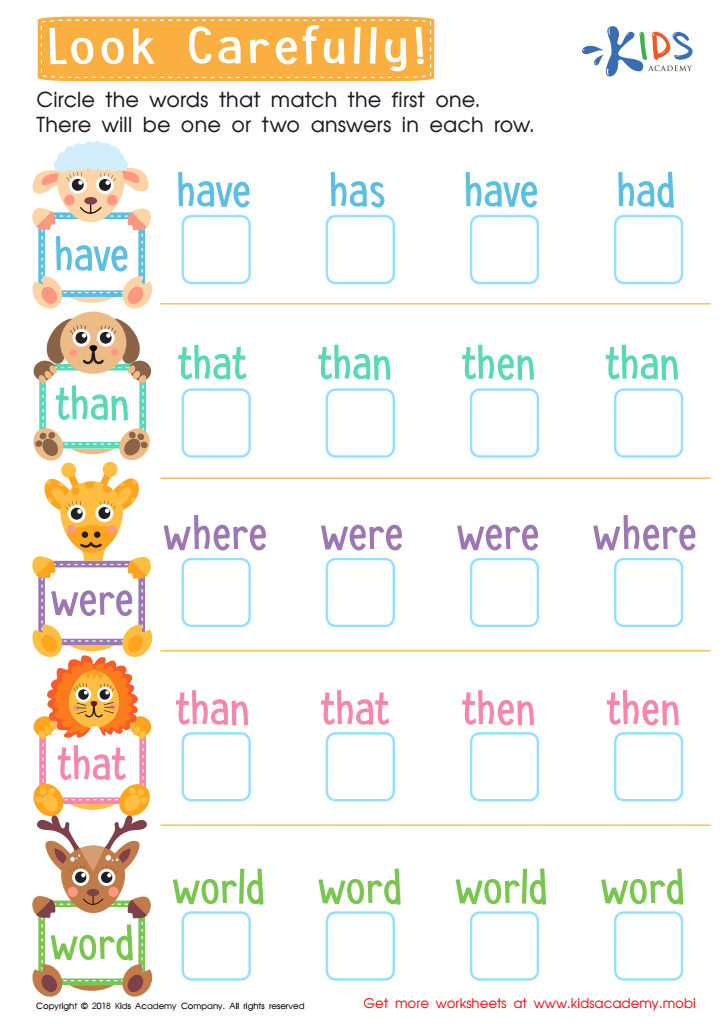

Look Carefully Worksheet
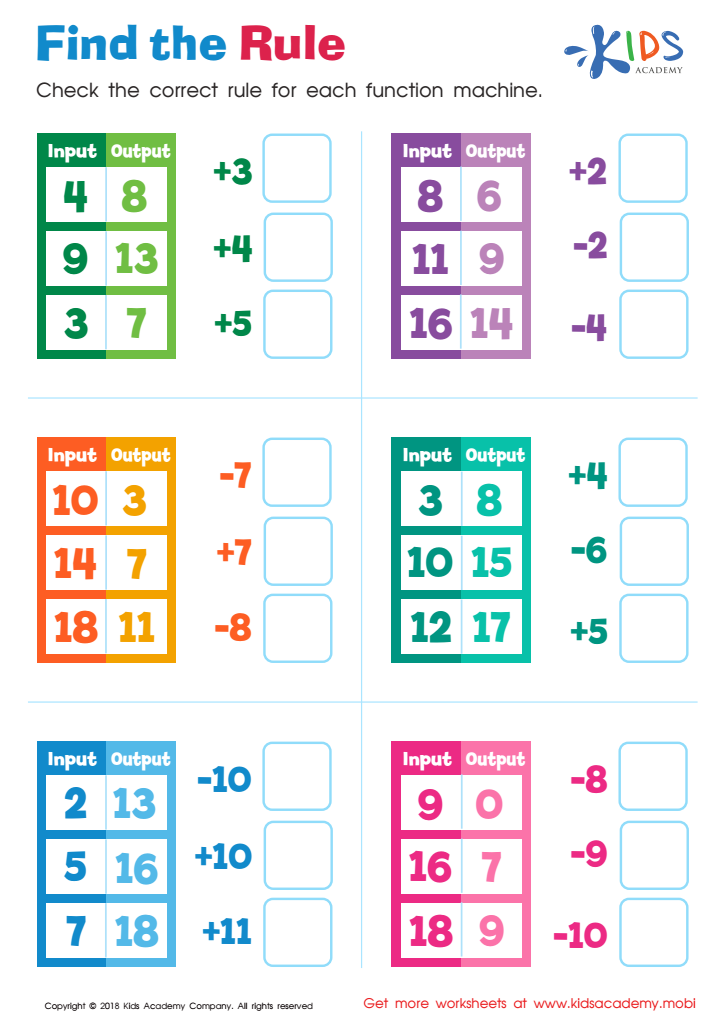

Find the Rule Worksheet


Logic Game Sorting Worksheet


Christmas: Christmas Tree Printable
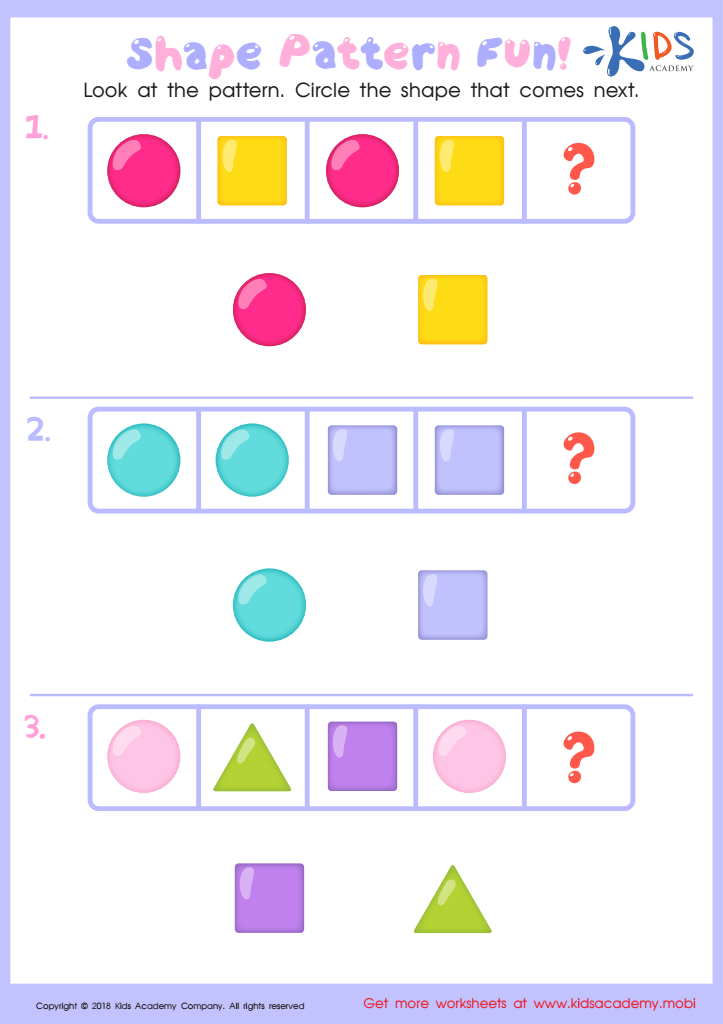

Shape Pattern Fun Worksheet
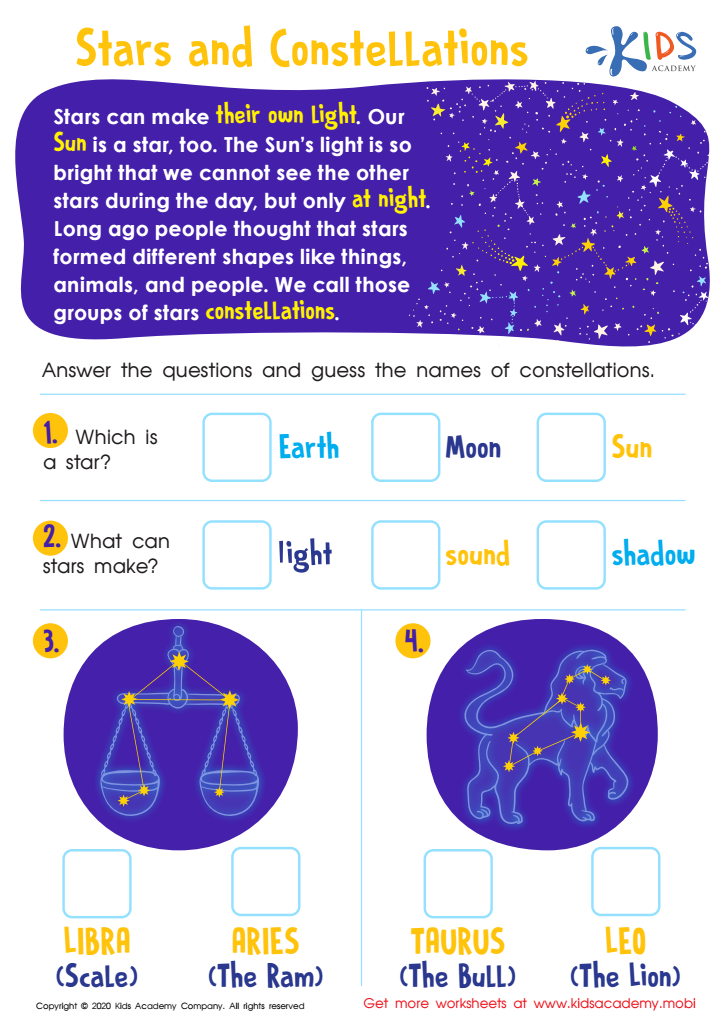

Stars and Constellations Worksheet
Pattern recognition is a foundational skill that plays a crucial role in early childhood development, especially for children ages 3-6. Teaching pattern recognition helps to build a child's cognitive and problem-solving abilities, fostering an essential mental framework for future learning experiences. For instance, when children identify and predict patterns, they develop critical thinking and observational skills. This enhances their understanding of mathematical concepts, such as identifying sequences, counting, and spatial reasoning, which are integral in early education.
Additionally, recognizing patterns supports language development. By identifying patterns in sounds and rhythms, young children improve their phonemic awareness, which is a vital precursor to reading. For example, recognizing rhyming patterns in nursery rhymes can assist in honing their listening skills and vocabulary.
Moreover, pattern recognition nurtures creativity and attention to detail. As children explore and create patterns through play, they engage their imagination, enriching their creative expressions and abilities to focus. This also fosters emotional development as they learn to perceive and make sense of their environment, providing comfort and a sense of achievement.
Parents and teachers should prioritize pattern recognition as it not only enhances academic readiness but also supports overall developmental milestones. Encouraging these skills through playful activities helps lay a strong foundation for lifelong learning and curiosity.
 Assign to My Students
Assign to My Students
